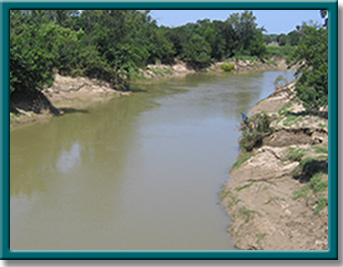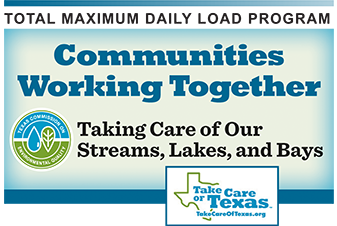Trinity River
Watershed Counties: Dallas, Ellis, Kaufman, Navarro, Parker, Tarrant
Parameter: Polychlorinated Biphenyls (PCBs)
River Basin: Trinity River
Segments: 0805, 0806, 0829, 0841
On this page:
Summary
In twelve assessment areas of four segments of the upper Trinity River, concentrations of polychlorinated biphenyls (PCBs) are elevated in fish tissue. As a result, the Texas Department of State Health Services (DSHS) issued a fish possession ban and a consumption advisory for various portions of the affected segments of the Upper Trinity River (Segment 0805), the Lower West Fork Trinity River (Segment 0841), the Clear Fork Trinity River Below Benbrook Lake (segment 0829), and the West Fork Trinity River Below Lake Worth (Segment 0806). The combined watersheds of all four segments cover 1,540 square miles. Advisory 43 (ADV-43), released in 2010, is available on the DSHS website , listed under the Trinity River.
Polychlorinated biphenyls (PCBs) are a group of chemicals that share a common structure called biphenyl, but vary in the number and location of attached chlorine atoms. Prior to discovery of its toxicity in the early 1970s, PCBs were widely used in electrical equipment and sealants. PCBs are linked to increased rates of certain cancers in rats, mice, and other study animals, suggesting they are probably cancer-causing in humans.
The goal of this project was to assess the sources and extent of PCB contamination in fish.
Public Participation
Participation of stakeholders is a key element in all TMDL Program projects. The North Central Texas Council of Governments coordinated public participation in this project.
Project Documents
- Final Technical Report
 PCB Dataset #2 - Corrected May 2009
PCB Dataset #2 - Corrected May 2009 PCB Dataset #1
PCB Dataset #1 - Monitoring Plan - August 2007
Contact the TMDL Program
Please e-mail tmdl@tceq.texas.gov and mention the Trinity River PCBs project in the subject line. Or call us at 512-239-6682.





 Back to top
Back to top